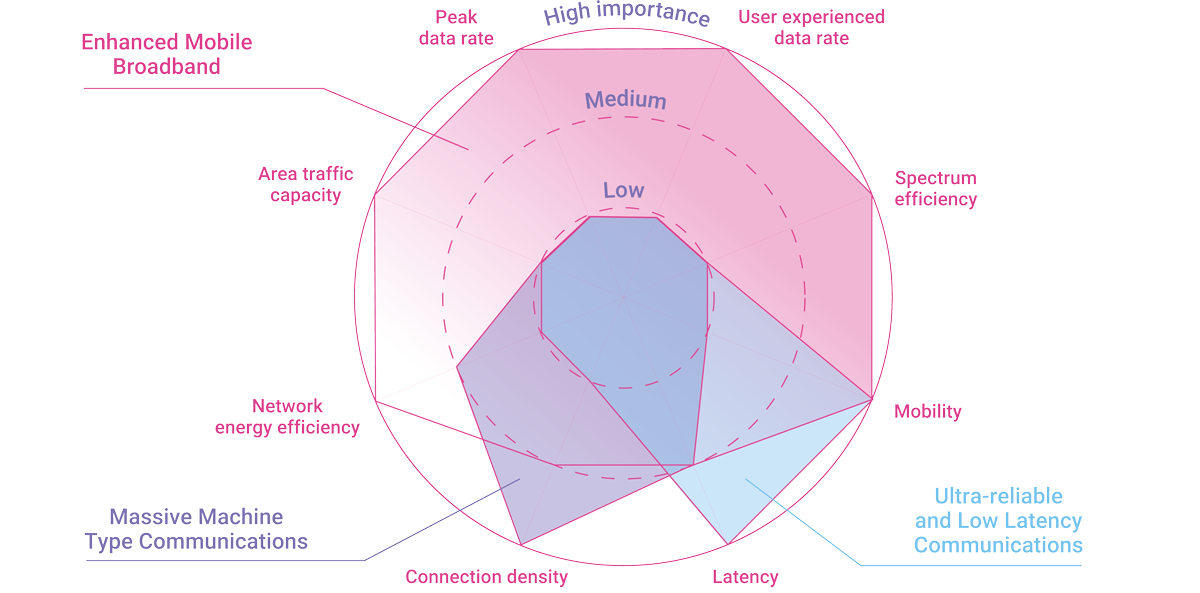
Tim Miller
Partner, Plum Consulting
Enterprises have already started to build their own 5G networks, separate from the mobile operators’ public networks. Why is this and should it be encouraged?
Much of the world is focussing on 5G as a consumer service – one that improves phone connectivity and signal coverage. However, benefits will likely be first felt among business users, where companies have invested in ‘private’ 5G networks.
The crux is that 5G isn’t limited to public networks. The technology is also being rolled out on private networks to give low latency, high reliability, and a large density of connected devices to businesses.
5G networks can be tailored to different needs
While private networks are not a new phenomemon, the advent of 5G allows industries to design a network that is specific to their needs.
For example, an automated warehouse may require millions of connections within a small geographic area but not rely on high bandwidth, while an airport offering both consumer services and operational connections over a single network will need capacity and reliability, and industrial automation requires low latency and high peak data rates.
5G technologies can offer all of this, but not necessarily at the same time. There are three general types of 5G network:
- Enhanced mobile broadband (eMBB)
- Massive machine type communications (MMTC)
- Ultra-reliable low latency connections (URLLC).
Public networks need to be designed around the first of these, so they can hope to recover costs.

5G can offer bespoke network design
While the above categories are a good starting point, private networks are not constrained to these predetermined designs.
This means that additional capacity can be built into defined locations, and quality of coverage and service can be monitored, if needed.
While public operators can’t predict the demand for their network, private networks have a more defined need – and network designers can use this to reduce costs. However, that is not to say private networks will be cheaper than buying capacity on a public network, as they will not have the benefit of larger economies of scale and better external connectivity that public networks do.
A shared public-private network can be cheaper, but may then lack flexibility for meeting demand and may be less secure. The security of fully private networks may be crucial for enterprise, but this comes at a cost.
It is crucial that enterprises understand their requirements before making any decisions on how to commission a network.
What is needed for a private network to run?
All mobile networks require radiospectrum. In order to operate a network, private users must gain access to radiospectrum, either by ownership or though some sharing arrangement.
Unlicenced spectrum, such as that used for standard wifi, does not meet the security and reliability requirements of industry for 5G. However, getting dedicated access to spectrum that can benefit from 5G ecosystems can be difficult.
Some regulators are trying to address this. In France, mobile network operators will be able to acquire additional spectrum on the condition that industry can access it under reasonable conditions. In Germany, the regulator reserved 100 MHz of C-band spectrum for industrial uses, meaning that mobile networks were left with less.
Reserving access to spectrum for new services can promote innovation, but it may not be efficient as it could reduce the capacity of public 5G networks.
Industrial users are generally facing a choice between uncertainty of future use (if mobile networks are temporarily sharing their spectrum) or high costs (if spectrum holdings are specifically acquired).
Spectrum sharing between different users may be a better approach, through techniques such as ‘dynamic access,’ which gives people access to spectrum as and when they need it.
How UK businesses can benefit from private 5G
Private 5G presents a huge opportunity for UK business, helping to automate and modernise industry and communications in a reliable and secure way.
However, it is crucial that networks are appropriately designed and spectrum is used in the appropriate way. Governments, regulators and industry need to continue to work together to make sure this happens.


